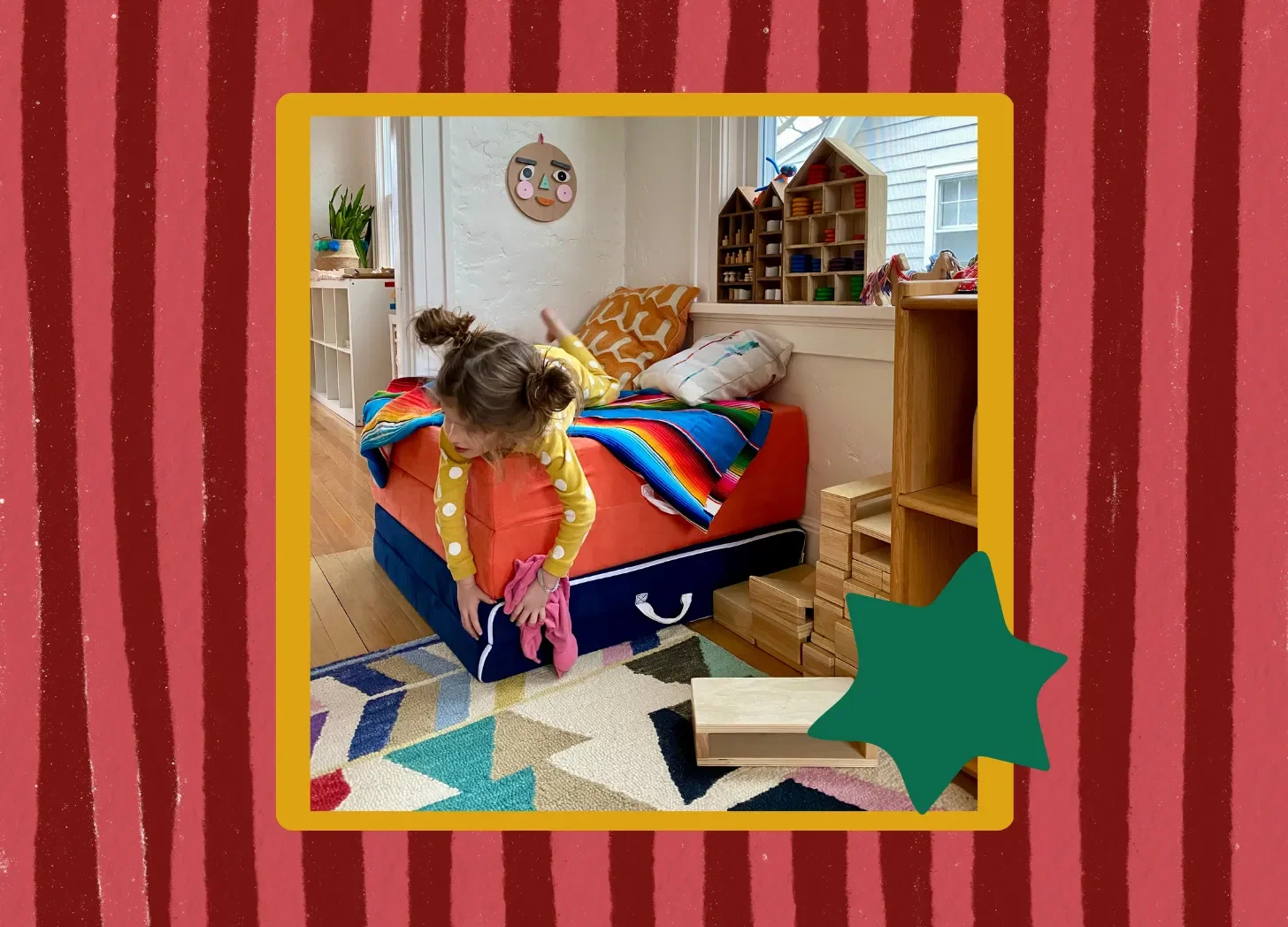Maybe College Kids Can’t Cope Because We Forgot to Let Them Play on Their Own
Resilience isn’t taught at 18 it’s built at 4, on the living room floor
A therapist who works with college students recently told me something that stopped me in my tracks. She said her clients, smart, capable, raised-on-enrichment, tutors and club sports kids, are struggling with the same three things:
They shut down completely after a setback.
They can’t solve problems without involving their parents.
They overthink every decision like it’s life or death.
These aren’t college problems. These are play problems.
The second she said it, I thought to myself, these kids probably didn’t have a lot of unstructured time to play independently when they were little.
I am talking about the kind of play that builds grit, decision-making, and self-trust, not just entertainment.
I am referring to child-led play where:
You’re bored… so you figure it out.
Your tower falls, you get upset, you pull it together, and start again.
Nobody’s directing or entertaining… so you come up with your own plan.
That’s the kind of play that has slowly been disappearing and replaced by screens, enrichment, and club sports.
We pack our kids’ schedules in the name of giving them opportunities we didn’t have.
We step in to help, fix, suggest, and narrate, all with the best intentions. We bring the forgotten violin, we edit their homework, and email their teacher when they get a bad grade. It feels like good parenting. It feels like love…But in the process, we accidentally take away the one thing they really need: Room to lead.
I know eighteen feels far away when your four-year-old still needs help opening a yogurt tube without exploding the pink sticky mixture until it’s dripping down the kitchen wall. But the mess is kind of the point.
These patterns don’t start in high school. They start now. In your living room. In the small, seemingly unimportant moments we don’t even notice. And you have the power to change the pattern right now.
When your kid asks you to play… and suddenly you’re Doing Everything
The voices. The plot. The setup.
You think:
“This is how we connect.”
“This is what good parents do.”
And I get it. They’re asking for you. It feels like your job to say yes.
Totally normal and well-meaning. But also? It’s exhausting for you, and building some not-so-great patterns for them
Here’s what I want to add to the “to play with my kid or not” conversation:
You don’t have to stop playing with your kids, but you can stop running the show.
Instead of being the lead character, be the mirror.
That can look like:
Being nearby, interested, but not in charge of the game, the Lego directions, or the craft. It can look like being curious by asking interesting questions, but not leading their answers, and certainly not changing the plot of the game or the design of the building.
There’s a big difference between playing to entertain them and playing as a “mirror.”
So when they say, “You be the duck!”
The entertainer parent starts quacking and being silly and exciting, and fun!
The mirror parent says, “Sure. What should the duck do?”
And when they pause, you don’t jump in with the next plot twist.
You wait.
As parents, we are not there to fix or make their play magical. That belongs to them.
You’re just there reflecting what’s already unfolding and showing interest in what matters to them.
That subtle shift in your role is what helps your child learn:
My ideas matter.
I can figure things out.
I don’t need someone else to entertain me.
I don’t need someone else to decide for me.
And under the surface, they’re building:
Resilience
Problem-solving
Confidence in their own thinking
The ability to start without waiting for someone else
These are the exact things that college-age kids are still trying to learn.
So next time your kid asks you to play, don’t take over. Let the duck drive the car.
You’re just along for the ride.
And yes, it will feel weird at first. It will be awkward for you both.
You’ll probably feel like you’re not doing enough.
But that’s the good stuff. That’s how you know change is happening.
They don’t need one more activity. They need more time to figure it out.
If this post resonated with you, consider becoming a paid subscriber to unlock posts like these and more:
Thank you so much for being here. I appreciate this Substack community so much. I would be so grateful if you could leave a little comment or heart below. Even better? Forward this to your group chat. x. Lizzie






